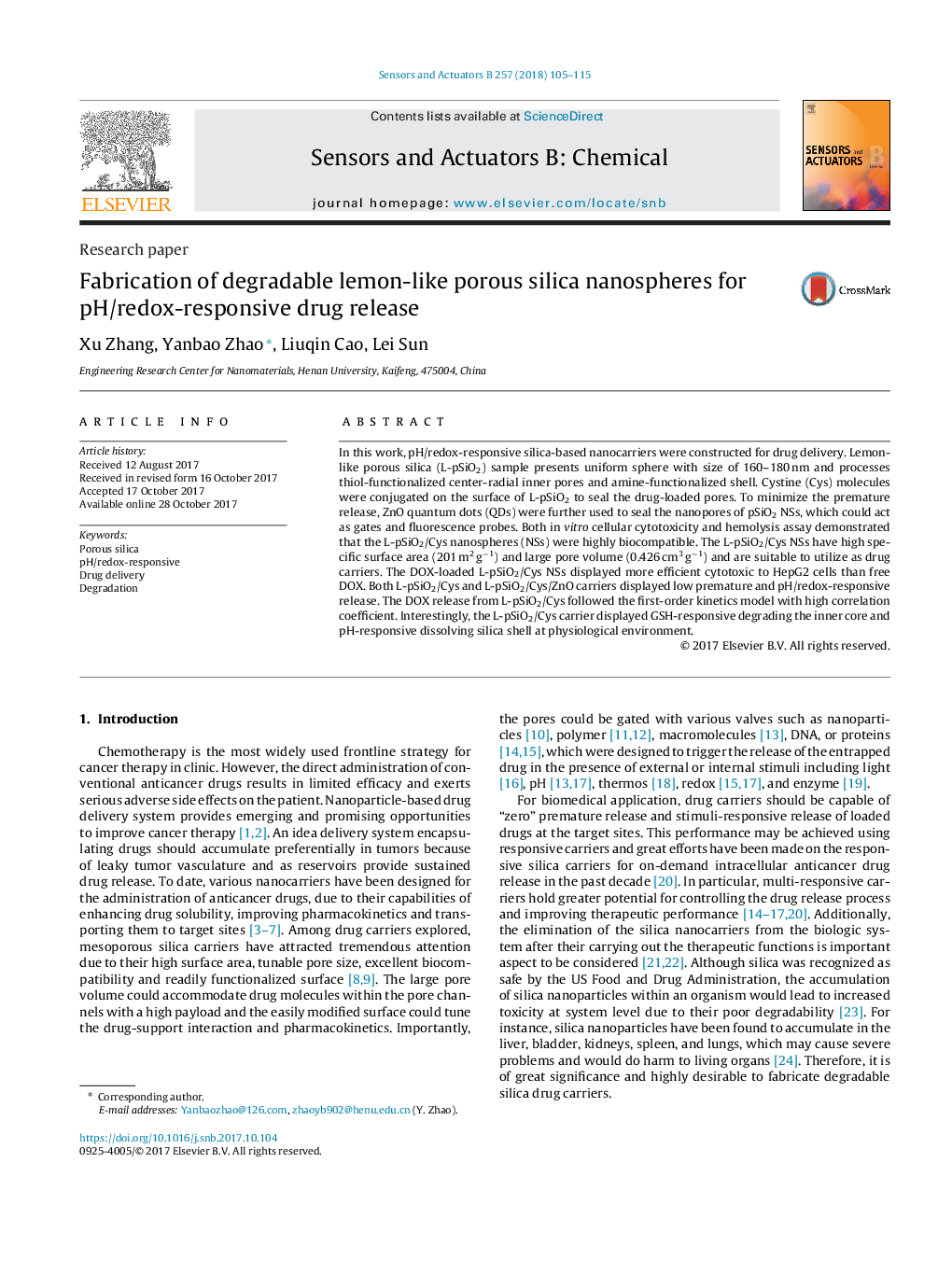| Article ID | Journal | Published Year | Pages | File Type |
|---|---|---|---|---|
| 7141143 | Sensors and Actuators B: Chemical | 2018 | 11 Pages |
Abstract
In this work, pH/redox-responsive silica-based nanocarriers were constructed for drug delivery. Lemon-like porous silica (L-pSiO2) sample presents uniform sphere with size of 160-180Â nm and processes thiol-functionalized center-radial inner pores and amine-functionalized shell. Cystine (Cys) molecules were conjugated on the surface of L-pSiO2 to seal the drug-loaded pores. To minimize the premature release, ZnO quantum dots (QDs) were further used to seal the nanopores of pSiO2 NSs, which could act as gates and fluorescence probes. Both in vitro cellular cytotoxicity and hemolysis assay demonstrated that the L-pSiO2/Cys nanospheres (NSs) were highly biocompatible. The L-pSiO2/Cys NSs have high specific surface area (201Â m2Â gâ1) and large pore volume (0.426Â cm3Â gâ1) and are suitable to utilize as drug carriers. The DOX-loaded L-pSiO2/Cys NSs displayed more efficient cytotoxic to HepG2 cells than free DOX. Both L-pSiO2/Cys and L-pSiO2/Cys/ZnO carriers displayed low premature and pH/redox-responsive release. The DOX release from L-pSiO2/Cys followed the first-order kinetics model with high correlation coefficient. Interestingly, the L-pSiO2/Cys carrier displayed GSH-responsive degrading the inner core and pH-responsive dissolving silica shell at physiological environment.
Related Topics
Physical Sciences and Engineering
Chemistry
Analytical Chemistry
Authors
Xu Zhang, Yanbao Zhao, Liuqin Cao, Lei Sun,
